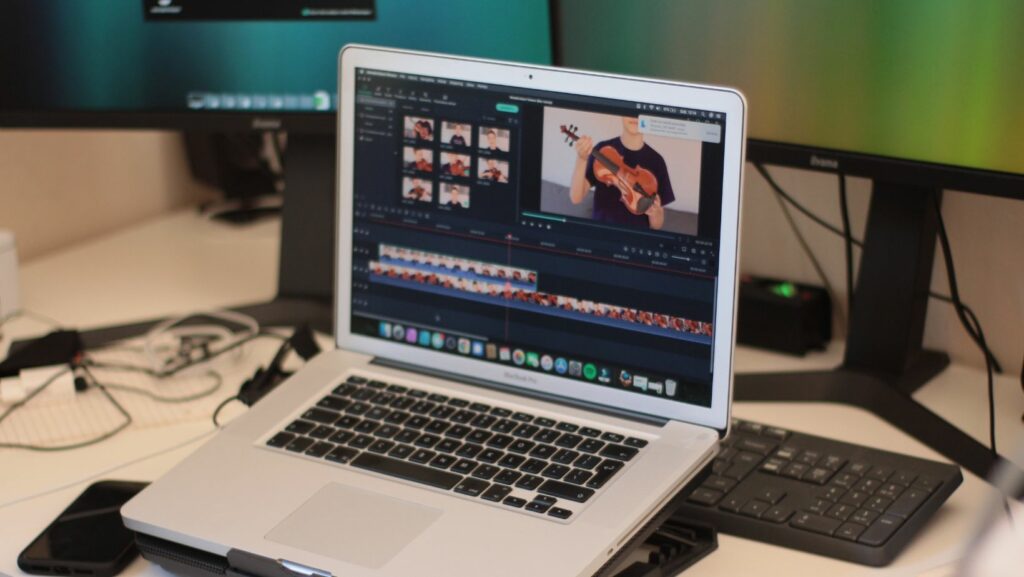As educational institutions increasingly embrace digital platforms, the sharing of video content has become commonplace. Whether it’s a recorded lecture, a webinar, or a tutorial, these resources offer remarkable opportunities for engaging students and fostering a broader learning community. However, the rise of such digital materials also brings forth pressing ethical considerations, especially concerning the confidentiality of personal information. This is where the importance of AI video redaction shines, acting as a guardian of privacy while navigating the web of legislation governing educational content.
Understanding the Importance of Video Redaction
When educators record and share video content, they often include not just their own contributions but also interactions with students and staff. This naturally raises questions about the privacy rights of individuals featured in these videos. Without proper redaction, sensitive information can be inadvertently exposed, leading to breaches of confidentiality.
AI video redaction tools enable institutions to automatically identify and blur or black out private data, including faces, names, and any sensitive content that may arise during a discussion. Moreover, these solutions can help institutions stay compliant with educational privacy laws, such as the Family Educational Rights and Privacy Act (FERPA) in the United States. For those navigating these regulations, FERPA compliance made simple provides a comprehensive understanding of requirements and best practices for protecting student information.
The Ethical Landscape of Educational Content Sharing
Balancing Transparency and Privacy
The ethical implications of sharing educational content are complex. On one hand, educators and institutions aim to foster a culture of transparency, sharing knowledge freely to support learning in and out of the classroom. On the other hand, they must safeguard students’ and staff’s privacy. This dichotomy places pressure on educators to strike a delicate balance: providing valuable resources while ensuring compliance with privacy regulations.
Educational content is often richer when it includes real interactions and discussions between educators and students. However, the inclusivity of these experiences must be weighed against the potential risks to personal privacy. Hence, effective video redaction becomes essential. Without these measures, educational video content could unintentionally reveal private interactions, subjects, or sensitive topics that were not intended for public dissemination.
The Role of Technology in Ethical Sharing
Technology can serve as an enabler in addressing these ethical concerns. The integration of AI in video redaction means that institutions can utilise sophisticated algorithms designed to detect and obscure sensitive information quickly. Such tools not only save time but also diminish the potential for human error, which is particularly valuable in high-pressure academic environments.
For instance, during a classroom discussion, students may reveal personal opinions on sensitive topics or share details about their lives that they would not want widely broadcast. Automatic identification and redaction of these instances can help preserve the intent of open dialogue while protecting student confidentiality. As a result, schools can share educational content without compromising the trust their students place in them.
Legislation and Institutional Responsibility
When addressing the ethical sharing of educational content, institutions must remain aware of the legal framework guiding these practices. Beyond FERPA, other regulations may govern specific contexts—it’s crucial for schools to be informed and proactive in their compliance efforts.
For example, in the UK, the General Data Protection Regulation (GDPR) lays down strict guidelines on how personal data should be handled. This further emphasises the need for robust redaction techniques, as schools must ensure that any materials shared do not inadvertently disclose personally identifiable information. Failure to comply with these regulations can result in serious legal consequences and undermine public trust in educational institutions.

As institutions navigate these challenges, embracing responsible practices will not only enhance their compliance but also serve as a cornerstone for ethical behaviour in education. Stakeholders must cultivate a mindset that prioritises the protection of individual rights while fostering a rich educational resource environment.
Perfect Practices for Ethical Video Sharing
To ensure ethical sharing of video content while maintaining compliance with privacy regulations, educational institutions should consider implementing several best practices:
Comprehensive Training and Policies
- Educator Training: It is essential that educators are adequately trained in privacy standards and informed about the implications of sharing video content. Workshops or online modules can foster understanding and adherence to best practices.
- Clear Policies: Institutions should develop clear policies outlining acceptable video sharing practices, including explicit guidelines on what can be recorded, and how to handle student participation.
Use of AI Tools
- Automated Redaction: Leverage AI tools for video redaction to minimise risks associated with human oversight. These tools can rapidly process content and flag sensitive information for review.
- Data Security Measures: Adopt additional security measures, such as encryption, to safeguard video files and limit access to authorised personnel only.
Transparency with Students
- Informed Consent: Prior to recording or sharing video content, seek informed consent from students and allow them the option to opt-out if they prefer not to be included.
- Open Discussion: Engaging students in discussions about the purpose of recordings and how their data will be used can foster trust and transparency.
Continuous Evaluation
- Regular Policy Review: Institutional policies should remain dynamic and subject to regular reviews to adapt to ongoing legal changes and educational environments.
Conclusion
The sharing of educational content through video is an invaluable asset in enhancing learning. However, educators must navigate the ethical landscape of privacy with care. As technology continues to evolve, embracing AI video redaction tools not only streamlines compliance with regulations like FERPA but also reinforces an ethical commitment to protecting individuals’ rights. By establishing sound practices and fostering a culture of transparency and respect, educational institutions can confidently share their resources while maintaining the integrity of their communities.

